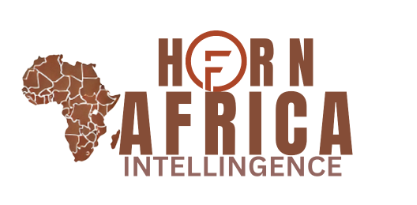Somalia has breathed new life into its long-dormant national development bank. Officials announced yesterday that the Somali Development and Reconstruction Bank (SDRB) is set to make its first investments this year after being revitalised in 2024.
The bank, originally established in 1968 but later abandoned during decades of conflict, represents a significant milestone in Somalia’s economic recovery efforts.
“This is a historic moment for our nation,” said Finance Minister Bihi Ige “The return of our development bank signals Somalia’s commitment to sustainable economic growth and financial independence.”
Sources close to the matter report that Somali authorities are actively seeking international funds to bolster the bank’s capabilities. The government aims to secure partnerships with global financial institutions and foreign investors to increase the bank’s capital base.
In a related development, Somalia has officially joined the African Export-Import Bank (Afreximbank) Agreement, becoming the 53rd member country of this pan-African financial institution.
The move comes as part of Somalia’s broader strategy to reintegrate into regional and global financial systems after years of isolation.
“Membership in Afreximbank opens new doors for Somalia,” explained Central Bank Governor Abdirahman Abdullahi. “It provides access to trade financing, project funding, and technical assistance that are crucial for our development agenda.”
Economic analysts view these developments as positive signs for Somalia’s business environment. The country has been working to rebuild its economy after decades of civil war and political instability.
Local business leaders expressed optimism about the bank’s revival. “Small and medium enterprises have struggled to secure financing for years,” said Mohamed Gabeire, chairperson of the Somali Chamber of Commerce. “The SDRB will fill a critical gap in our financial ecosystem.”
The bank is expected to focus initially on key sectors, including agriculture, infrastructure, and renewable energy. These priorities align with Somalia’s national development plan, which emphasises food security and basic infrastructure as foundations for economic growth.
International organisations have welcomed Somalia’s financial sector reforms. The World Bank and International Monetary Fund have provided technical support for the revitalisation process.
“The revival of this institution demonstrates remarkable progress,” noted Chief Economic Advisor to the President Dr Hassan Hosow. “However, maintaining transparency and good governance will be essential for the bank’s long-term success.”
Challenges remain for the newly revitalised bank. Somalia continues to face security concerns in parts of the country, and its banking regulations are still developing.
Government officials acknowledge these hurdles but remain confident. “We have implemented robust safeguards and compliance measures,” stated Director of FRC Amina Mohamed.
The bank plans to announce its first round of investments in the coming months. Priority will be given to projects that create jobs and promote sustainable development across Somalia’s regions.
Somalia’s membership in Afreximbank is expected to complement the SDRB’s activities. The continental bank has a strong track record of supporting trade finance and infrastructure development across Africa.
“These twin developments represent a new chapter in Somalia’s financial story,” said economic commentator Hassan Ali. “The country is leveraging both domestic and regional resources to fuel its recovery.”
Neighbouring countries have taken notice of Somalia’s financial sector reforms. Kenya and Ethiopia have expressed interest in strengthening cross-border trade and investment relationships.
As Somalia continues its journey toward economic stability, the revitalised development bank stands as a symbol of progress. After more than five decades since its original establishment, the institution has come full circle – once again ready to serve as an engine for national development.
The bank’s headquarters in Mogadishu has been renovated, with modern facilities and technology infrastructure. Staff recruitment is underway, with emphasis on bringing Somali financial experts from the diaspora back to contribute to the nation’s development.
“We are not just rebuilding a bank,” concluded Finance Minister Bihi. “We are rebuilding hope for Somalia’s future.”












